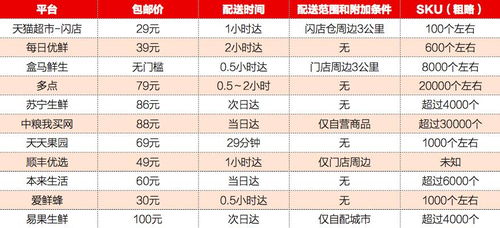sku电商图
Title: Understanding SKU Management in Ecommerce
SKU (Stock Keeping Unit) management is pivotal in the realm of ecommerce. SKUs serve as unique identifiers for products, enabling efficient inventory tracking, order management, and overall business operations. In this comprehensive guide, we delve into the intricacies of SKU management in ecommerce, exploring its significance, best practices, and how it contributes to business success.
The Importance of SKUs in Ecommerce
SKUs play a fundamental role in streamlining ecommerce operations:
1.
Inventory Management:
SKUs facilitate accurate tracking of inventory levels, allowing businesses to optimize stock levels, minimize stockouts, and prevent overstocking.2.
Order Fulfillment:
With unique SKUs assigned to each product variant, fulfillment processes become more efficient, reducing errors and ensuring the right products reach customers on time.3.
Data Analysis:
SKUs enable granular analysis of sales data, helping businesses identify topperforming products, track trends, and make informed decisions regarding pricing, promotions, and marketing strategies.
Best Practices for SKU Management
Implementing effective SKU management practices is essential for ecommerce success:
1.
Create Meaningful SKUs:
Develop a systematic approach to SKU creation, incorporating relevant product attributes such as size, color, style, and material. This ensures clarity and consistency across the inventory.2.
Keep SKUs Unique:
Each SKU should be distinct to avoid confusion and streamline inventory tracking. Avoid duplicating SKUs or using generic identifiers that don't provide valuable information.3.
Maintain Consistency:
Consistency in SKU formatting and structure enhances organization and simplifies inventory management. Establish clear guidelines for SKU creation and adhere to them consistently.4.
Regular Auditing:
Conduct periodic audits to review and update SKUs as needed. Remove obsolete or redundant SKUs, and ensure accuracy by crossreferencing SKUs with physical inventory.5.
Integration with Systems:
Integrate SKU management systems with other ecommerce platforms, such as inventory management software and ecommerce platforms, to ensure seamless data synchronization and streamline operations.Tips for Effective SKU Creation
Crafting informative and structured SKUs is key to efficient inventory management:
1.
Use Descriptive Keywords:
Incorporate descriptive keywords in SKUs to convey relevant product attributes. For example, a SKU for a red, mediumsized Tshirt could be "RTSRDM."2.
Standardize Naming Conventions:
Adopt a standardized naming convention for consistency and clarity. This could include abbreviations or codes for common attributes like color, size, and style.3.
Consider Scalability:
Anticipate future growth and scalability when creating SKUs. Ensure that the SKU structure can accommodate new product variants and expansions without causing confusion or inefficiencies.4.
Include Identifiers for Variants:
Differentiate between product variants (e.g., color, size) within the SKU to facilitate easy identification and selection during order fulfillment.Conclusion
In the dynamic landscape of ecommerce, effective SKU management is indispensable for operational efficiency, customer satisfaction, and business growth. By adhering to best practices, adopting standardized processes, and leveraging technology solutions, businesses can optimize SKU management to drive success in the competitive ecommerce market. Embrace the power of SKUs to unlock greater agility, accuracy, and profitability in your ecommerce endeavors.










